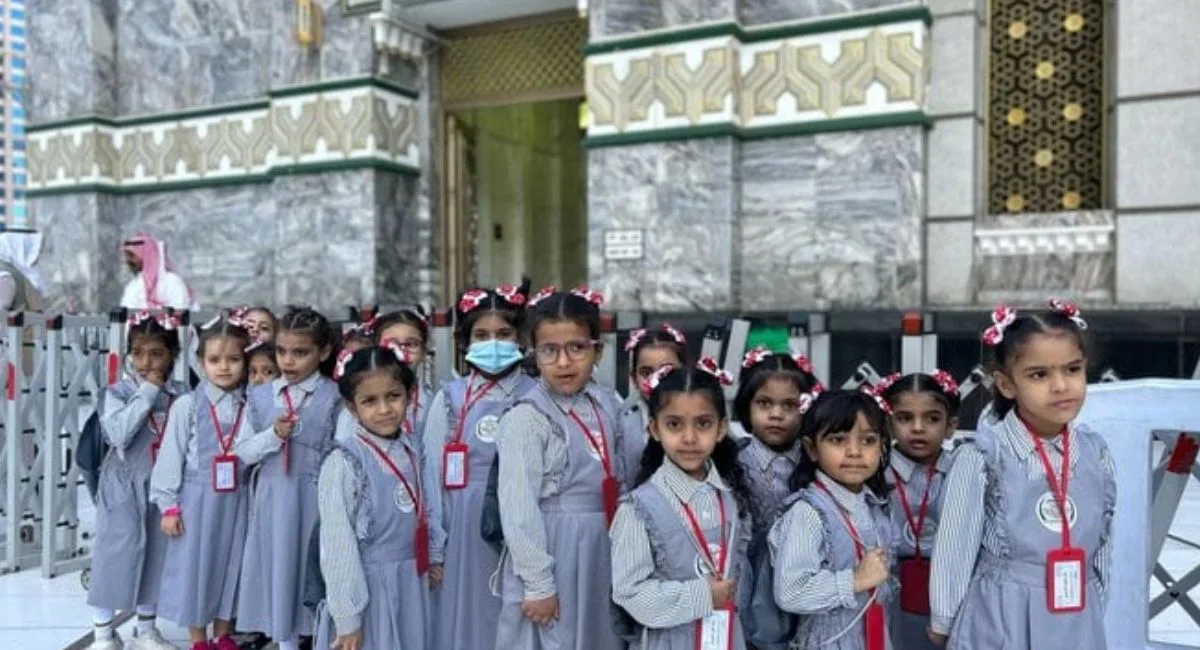 source by: Arab News
source by: Arab News
On Saturday, the General Presidency for the Affairs of the Two Holy Mosques took groups of children on a tour of the Grand Mosque.
The kids from the Al-Fikr and Al-Mawaheb Center and the Al-Abna Al-Nujabaa School Center saw the Kaaba and did Tawaf around it.
Noof Housawi, who works for the presidency’s media affairs agency, said that the tour was meant to teach the kids something.
“The lessons include Grand Mosque etiquette, prophet stories, and interactive games to increase the children’s knowledge and advance the female educational system.”
The female reciter of the Book and Sunnah led sessions on how to read Surat Al-Fatihah, talking about its good qualities and how important it is. She also listened to the students read the Surah.
Housawi told Arab News that the General Department of Women’s Public Relations is reaching out to outside groups to build partnerships, strengthen relationships, and improve communication, as well as to teach children about the Grand Mosque’s features.
“Children are given simplified lessons on how to act when entering mosques in general and the Grand Mosque in particular. They are also taught the stories of the prophets, how to take notes during sermons, and what each story is trying to teach them,” she said.
“They are also given information about Islamic ethics and how the Prophet and his followers praised them. Students are also encouraged to take part in activities that are meant to help them improve their skills.
Ibrahim Obeidan, a professor of student activities in Makkah education, said that community partnerships were a great way for young people to learn.
“The General Presidency for the Affairs of the Two Holy Mosques gives good examples of how to teach both male and female students different Islamic morals and values that are most important,” he said.
He also said that while schools take field trips to mosques, museums, and historical sites, Makkah students can take part in activities that help pilgrims and Umrah-goers.
“They will also be able to help them and enjoy the sacredness of the place, the weight of the responsibility, and the honour of doing work for free. So, they directly help the country and the King.”
